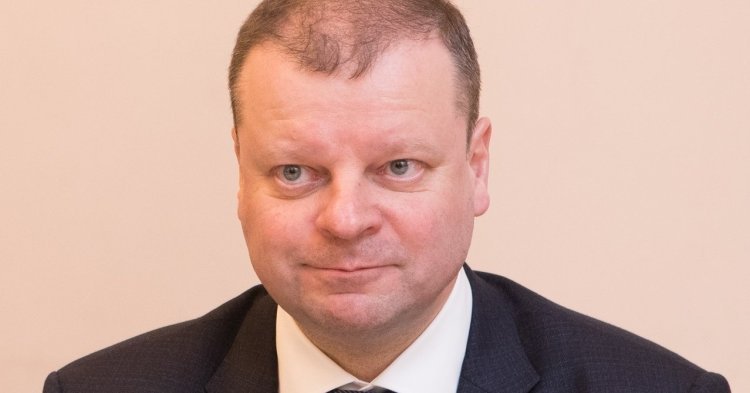Presidential election: Centre-right candidate and independent make it to second round
Prime Minister Skvernelis, whose Farmers and Greens Union party sits with the Greens/EFA group in the European Parliament, got 19.7% of the vote. Meanwhile, the centre-right Homeland Union’s Ingrida Šimonytė (31.1%) and the independent, former banker Gitanas Nausėda (31.0%), were neck and neck. After the results, Skvernelis said that “the failure to get to the second round is an assessment of [him] as a politician”, and promised to leave office on 12 July.
The run-off between the two most popular candidates will take place on 26 May, to coincide with European elections. Ramūnas Vilpišauskas from the University of Vilnius assessed that both Šimonytė and Nausėda are pro-EU and pro-NATO, and would support the current line of Lithuanian foreign policy. Of the candidates, Šimonytė is a former finance minister, while Nausėda entered the race from outside politics. The Lithuanian President leads the country’s foreign policy together with the government, and represents Lithuania in European Council meetings.
The winner of the 26 May election will be the successor of “Iron Lady” Dalia Grybauskaitė who is finishing her second term in office. Grybauskaitė has been rumoured to be a possible candidate to succeed Donald Tusk as the next European Council President.
Dual citizenship referendum prompted by emigration and Brexit concerns
The referendum on allowing dual citizenship is particularly relevant because over 700,000 people have left Lithuania since 1990, with the current population being about 2.8 million. Nearly a half of Lithuanians who leave the country move to the UK, and there is fear that Lithuanians living in the UK will choose to renounce Lithuanian citizenship in order to take a British passport to shield themselves from Brexit.
In the referendum, 73.4% voted in favour of the proposal, but the referendum failed because the threshold of a majority of the electorate supporting the proposal was not met. The overall turnout in the referendum was just 52.6%. The referendum on reducing the number of Lithuanian MPs from 141 to 121 also failed, as 76.2% voted in favour but the turnout only was 47.2%.
Currently, dual citizenship is only allowed for those who left Lithuania before 1990, that is, during the Soviet era. The proposal would have expanded the offer of dual citizenship to EU, EEA, OECD and NATO member states that meet “the criteria of European and transatlantic integration”. In other words, dual citizenship between Lithuania and Russia would still not have been allowed, though more than 8% of the Lithuanian population speaks Russian as their mother tongue.
If Lithuanian nationals are forced to give up on their citizenship, it may discourage them from returning to their country of origin, Politico reports. Interviewed by Politico, a member of the Lithuanian community in the UK criticised the referendum campaign for being too short, as the poll was only announced in March. On the Baltic Delfi site, the chair of the Lithuanian World Community Dalia Henke criticised the referendum question for its “very puzzling legal” wording that was hard for voters to understand.
After the failed referendum, the issue remains unaddressed. Gabrielius Landsbergis, leader of the centre-right Homeland Union, said that “probably we will have to do this again the same way”.


1. On 19 August 2019 at 23:07, by katherine Replying to: Lithuania PM to resign after coming third in presidential election, low turnout kills two referenda
Replying to: Lithuania PM to resign after coming third in presidential election, low turnout kills two referenda
Lithuania is a very interesting country. Thanks for the good article! I’m just filling out documents to go there, with this, by the way, it helps me http://confiduss.com/en/jurisdictions/lithuania/demographics/
Follow the comments: |
|
